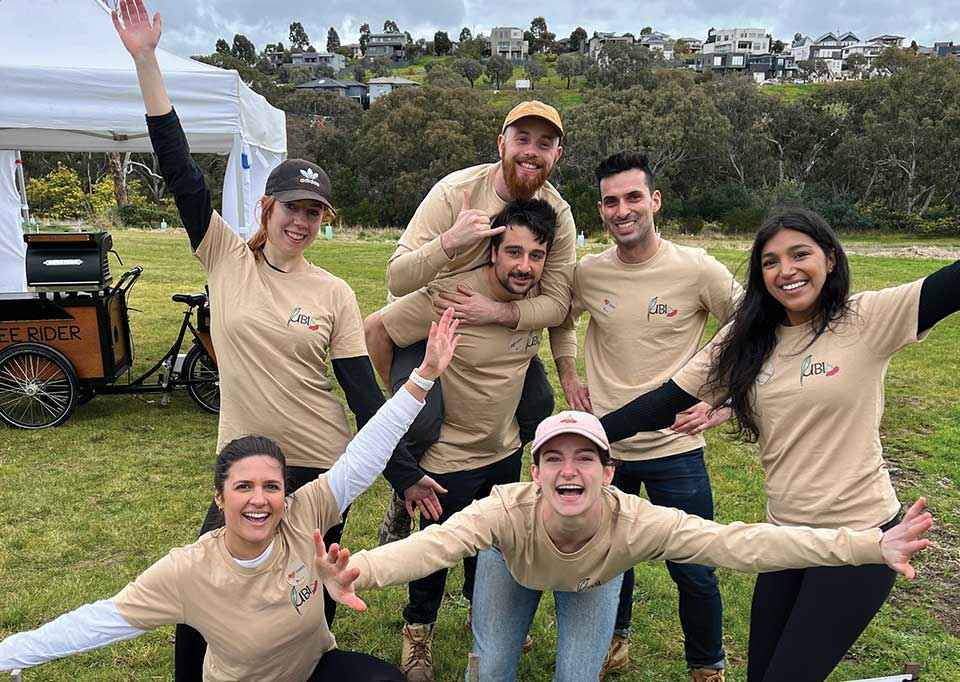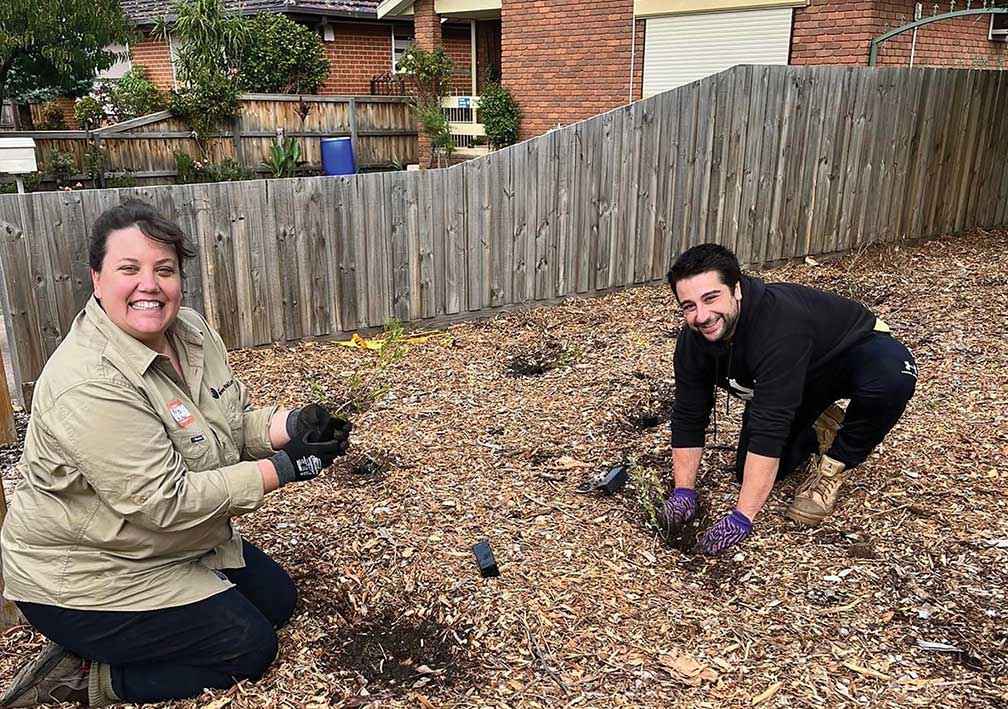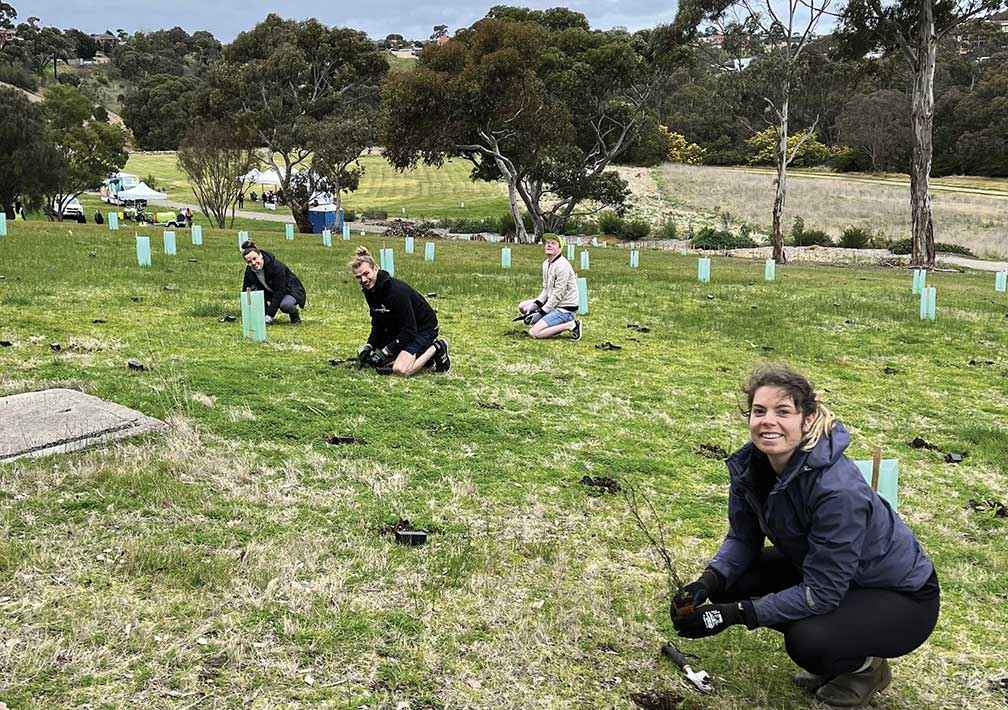Victorian Landcare Magazine - Spring 2024, Issue 88

January 2020: On a hazy Saturday morning in Melbourne I awoke to the bitter, burnt taste of bushfire smoke. It was a struggle to breathe. It was an even bigger struggle to accept the new norm – 18 million hectares burnt, the deaths of three billion native animals, charred woodlands and rainforests, and the human trauma and suffering that followed.
News of global naturalisation efforts, such as plans to revegetate 30,000 hectares of woodland in the United Kingdom and Ethiopia’s commitment to plant four billion trees, provided a fleeting sense of hope and inspiration. I called my optimistic friend, Lukas Steele, and pitched the idea of planting one million trees throughout Melbourne.
An email to the mayor of Moonee Valley City Council (MVCC), Samantha Byrne, led to a meeting and an introduction to the MVCC conservation team. Millicent Burke, the head of the team laid it all out to me: planting a million trees is helpful, but playing a part in local conservation is of even greater help. I readily agreed. Such was my want to affect change however that I expressed little desire in joining an existing conservation group, and instead formed my own – putting together a committee and becoming an incorporated association with Consumer Affairs Victoria. Incorporating not only legitimised the organisation but allowed us to apply for government funding.
Taking these first few steps was at first daunting, and two years of COVID-19 restrictions almost killed momentum. But by the end of 2021 The Urban Bushland Initiative Incorporated (UBI) had a fantastic committee and a memorandum of understanding with MVCC for two planting days in 2022.
Our first project, 300 low growing shrubs at Sterling Drive Reserve in Keilor East, was a roaring success thanks to Millicent’s tireless efforts. She guided us through plant selection and planning processes. Site preparation focused on weed removal, pre-drilling of holes for planting, and mulching. MVCC’s budget for contractors handles future maintenance of the site.
UBI was founded on a refusal to accept the status quo of biodiversity loss, climate change and the severance of our connection to the bush. We focus on revegetating the varied and little-known empty spaces throughout Melbourne.
UBI works with local councils, Parks Victoria, DEECA (formerly DELWP), Friends groups, and any other public or private organisations that wants to get involved. We plan and run planting days where the focus is on the community, working to foster the idea that local conservation is inseparable from local communities. It is an essential component of community health and wellbeing.
We focus on revegetating the varied and little-known empty spaces throughout Melbourne.
Site selection is mostly guided by local government and conservation groups, with occasional scouring through Google maps to see what’s been missed. The potential for wildlife habitat at a smaller scale can often be overlooked by planners. Each of our projects is unique – there is no one size fits all approach.
One of the keys to UBI’s success is acknowledging our limitations. We are less focused on long-term site management, which is better handled by local Friends groups and government agencies. Our niche is the ability to attract volunteers, pester private and public bodies to allow us to revegetate overlooked sites, and source funding from a variety of public and private sources.

Above: Alex Paporakis (at right) with Millicent Burke, Conservation Officer with Moonee Valley City Council at UBI’s first planting day at Sterling Drive Reserve, Keilor East in May 2022.
We give priority to the local – local people taking ownership of their local green spaces. We learnt the importance of this in 2022, after residents expressed dissatisfaction that contractors and consultants had transformed a degraded park in Avondale Heights into a woodland reserve without input from the community.
In the same year UBI had a planned revegetation project at Thompson Reserve, Avondale Heights, adjacent to the new woodland reserve. We decided to focus on the community, diverting some of our funding for the planting day toward food trucks, coffee vans, live music, and other local entertainment.
Despite it being a drizzly Saturday in the middle of winter more than 150 residents turned up. We had 3000 trees, shrubs and wildflowers, planted, guarded, and watered in only 45 minutes. The conversations and connections forged between locals that day are priceless, and there have been few dissatisfied residents. These are the people who will take on the responsibility for that patch of urban bush into the future.
By engaging with the community we are seeing attitudes begin to change. People are less worried about a gum tree obscuring their view when it means the return of a once locally extinct honeyeater. A discussion about indigenous plants leads people to notice and acknowledge a bias towards exotic species. Suddenly, the sunburnt colours of native vegetation begin to be appreciated. The insects that visit are fascinating, and the local birds are no longer noisy fruit thieves, but welcome backyard companions.

Above: First-time planters brave the cold at a planting day at Thompson Reserve in Avondale Heights. More than 70 per cent of our volunteers are under 35.
A desire to protect the local environment takes hold and people fill the role of community land stewards. Caring about the environment is not just for greenies, but for everyone – right across the political spectrum.
We have now hosted and co-hosted four planting events at different sites across three local government areas, involving more than 200 volunteers. More planting days are planned and we are also involved in urban hollow-building projects.
What started as a phone call about planting one million trees continues to transform and develop. Maybe one day we’ll even plant our one-millionth tree – but it won’t be just me, my friends and family – it will be a collective effort from a legion of newly impassioned Melburnians.
Alex Paporakis is president of the UBI.
For more information email urbanbushland@gmail.com or search for The Urban Bushland Initiative on Facebook or Instagram.